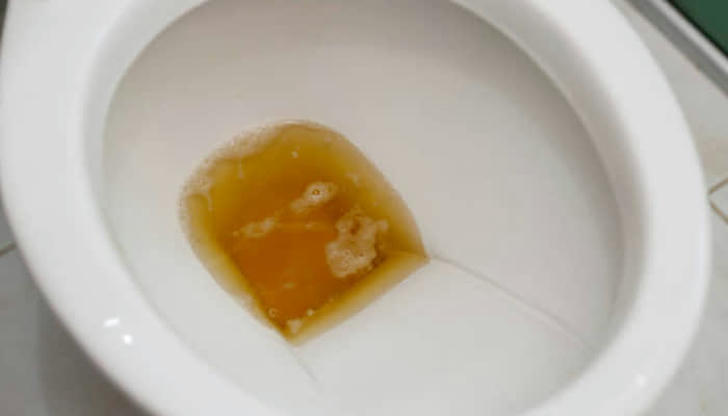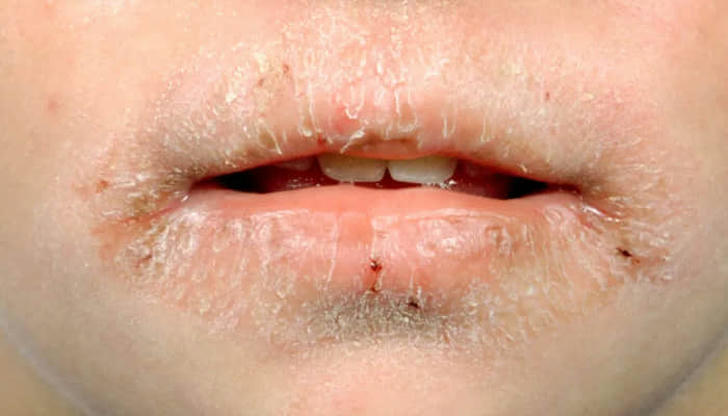9 Warning Signs of Dehydration You Shouldn't Ignore
Advertisement

Did you know that losing just 10 to 15% of your body's water can lead to severe dehydration, which is life-threatening? Surprising, right? Dehydration can be caused by common issues like diarrhea or vomiting, and even conditions like diabetes can make you prone to it.
Recognizing dehydration signs is crucial, but so is not over-drinking water when severely dehydrated, as it can be dangerous. If you suspect someone is severely dehydrated, it's vital to seek medical help promptly.
In this article, we'll delve into the 9 warning signs of dehydration that you should never ignore. Keep reading to learn how to recognize these signs early and take proactive steps to stay hydrated and healthy.
1. Dark urine color
Your urine color can be a vital indicator of dehydration. If it's dark yellow or amber, your body might be signaling a lack of sufficient fluids. This darker color occurs because your kidneys try to conserve water by producing more concentrated urine.

Keep an eye on the color of your urine; ideally, it should be a pale yellow, which indicates proper hydration. Darker shades suggest you need to increase your fluid intake, especially water.
2. Fatigue and dizziness
Feeling unusually tired or dizzy can be red flags for dehydration. When your body lacks water, it affects blood flow and oxygen transport, leaving you feeling drained and lightheaded.

If you're experiencing persistent fatigue and dizziness, especially after physical activity or being in hot environments, it's time to replenish fluids. Drinking water and consuming hydrating foods like fruits and vegetables can help boost your energy levels.
3. Dry skin and lips
Dehydration can visibly affect your skin and lips, making them feel dry, tight, or even cracked. When you're not drinking enough water, your skin loses moisture, leading to these uncomfortable sensations.

Combat dry skin and chapped lips by hydrating from within. Make a habit of sipping water throughout the day and using moisturizers to lock in hydration. Eating water-rich foods like cucumbers and watermelon can also contribute to healthier skin and lips.
4. Headaches and migraines
Dehydration can trigger headaches and migraines due to reduced blood volume and oxygen flow to the brain. When you're dehydrated, your body tries to conserve water by constricting blood vessels, which can lead to tension headaches or more severe migraines.

If you often experience headaches, especially after physical exertion or exposure to heat, it's crucial to check your hydration levels. Drinking water regularly throughout the day can help alleviate dehydration-related headaches and prevent them from occurring.
5. Muscle cramps and weakness
Muscle cramps and weakness are common signs of dehydration, particularly during or after strenuous activities. When you lose fluids through sweating and don't replenish them adequately, your muscles can become more prone to cramping and feeling weak.

To prevent muscle cramps and maintain muscle strength, stay hydrated before, during, and after exercise or any activities that cause you to sweat. Electrolyte-rich drinks or foods can also help restore essential minerals lost through sweating.
6. Rapid heartbeat and low blood pressure
Dehydration can affect your cardiovascular system, leading to symptoms like a rapid heartbeat and low blood pressure. When you're dehydrated, your body compensates by reducing blood volume, which can cause your heart to work harder and result in an elevated heart rate.

Low blood pressure, or hypotension, can also occur due to dehydration because there's less fluid available to maintain normal blood pressure levels. This can lead to symptoms like dizziness, fainting, and fatigue.
Maintaining adequate hydration is crucial for supporting a healthy cardiovascular system. Drinking water regularly and consuming electrolyte-balanced foods and beverages can help regulate your heart rate and blood pressure.
7. Sunken eyes and lack of tear production
Dehydration can affect your eyes, causing them to appear sunken and reducing tear production. When your body lacks sufficient fluids, it prioritizes essential functions, leading to decreased tear production. This can result in dry, irritated eyes and contribute to eye discomfort or vision problems.

To maintain eye health and comfort, ensure you stay adequately hydrated throughout the day. Using lubricating eye drops may also help alleviate dryness and irritation caused by dehydration.
8. Confusion and irritability
Dehydration can impact cognitive function and mood, leading to feelings of confusion and irritability. When you're dehydrated, your brain may not function optimally, affecting your ability to concentrate, make decisions, and regulate emotions.

If you notice increased confusion or irritability, especially coupled with other dehydration symptoms, such as dark urine or dry mouth, prioritize drinking water and fluids to rehydrate. Adequate hydration can support mental clarity and emotional well-being.
9. Reduced urine output
One of the key indicators of dehydration is reduced urine output or infrequent urination. When you're dehydrated, your body conserves water by producing less urine, leading to concentrated and darker-colored urine.

Monitoring your urine output and color can provide valuable insights into your hydration status. Aim for regular and adequate fluid intake to ensure healthy urine production and prevent dehydration-related complications.



